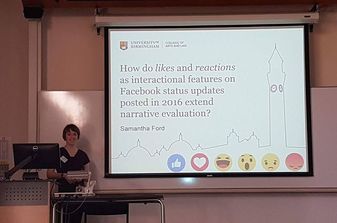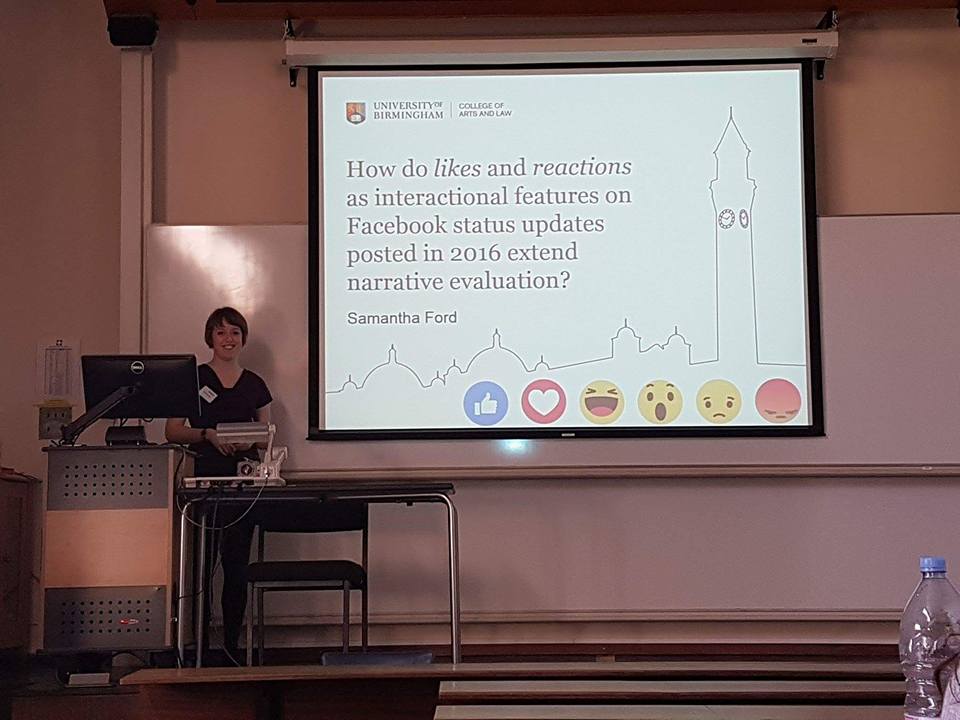for the second day of the three-day conference.
0 Comments
How do likes and reactions as interactional features on Facebook status updates posted in 2016 extend narrative evaluation? |
|||||||||||
| While previous research has investigated Facebook likes, their role in evaluating online content, and expanding evaluative practices in an online environment, in 2016 reactions were newly-released on Facebook, and have not yet received much scholarly attention. Therefore, in this study I analysed the meanings attributed to likes and reactions by Facebook users and how they were actually employed to respond to Facebook status updates. I compared my results with previous studies to determine how far the use of likes and reactions have extended |
| ULAB17 Abstract | |
| File Size: | 149 kb |
| File Type: | |
Categories
All
Academic Advice
Academic Research
Awards
Collaborations
Conferences
Courses
EMMA Project
Fundraising
Partnership With Big Cat Agency
Press
Projects
Publications
Research Experience
Teaching
Testimonials
Training
Workshops
Archives
October 2022
June 2022
May 2022
March 2022
February 2022
January 2022
December 2021
November 2021
October 2021
September 2021
June 2021
May 2021
April 2021
March 2021
December 2020
October 2020
July 2020
June 2020
March 2020
February 2020
October 2019
September 2019
August 2019
July 2019
April 2019
November 2018
August 2018
July 2018
June 2018
May 2018
April 2018
March 2018
February 2018
January 2018
October 2017
September 2017
July 2017
April 2017
July 2016


